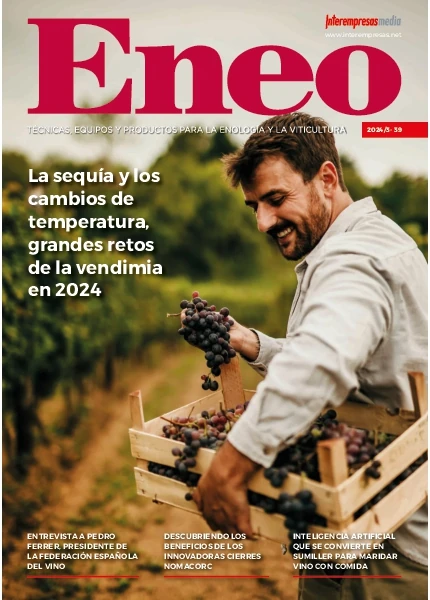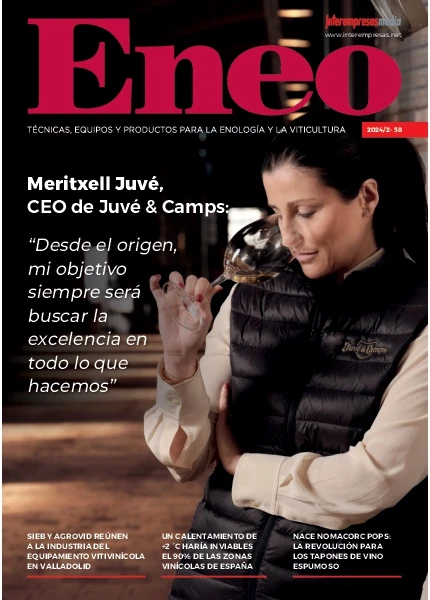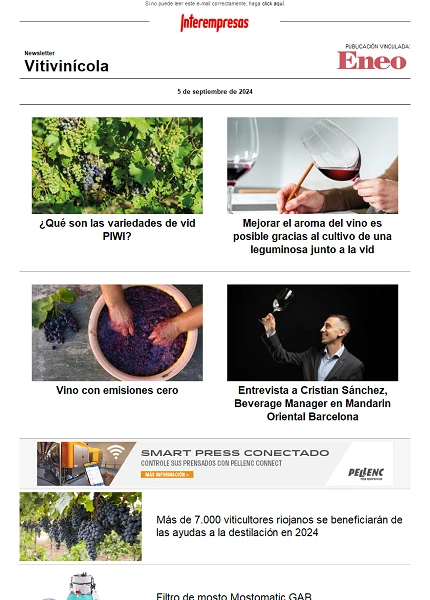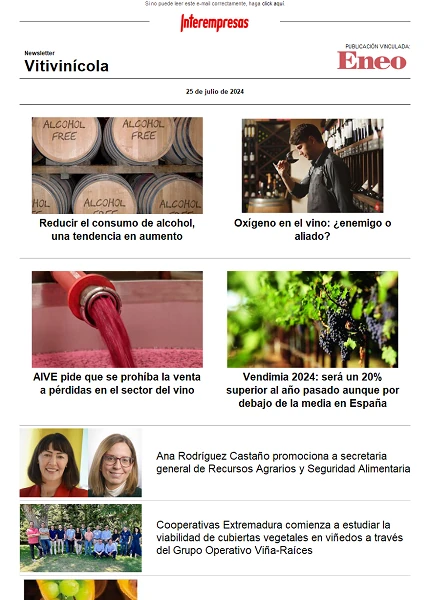Five misconceptions about plastic bags
False myth number 1.-plastic bags are not recycled. Most are burned in incinerators or landfills will
Spain is a leader in recycling of plastic bags from all over Europe. Plastic bags are 100% recyclable and 100 per cent of the bags that are placed on the yellow container recycling.
While in other European countries, plastic bags are recovered through energy recovery, Spain is the only country that has a system of selective collection and recycling that supports the bags as a container of plastic recycling in the yellow igloo. This is so since that in 1998 the manufacturers of bags and shops signed a voluntary agreement with Ecoembes whereby the Green point system funded selective waste collection in the igloo yellow and subsequent recycling of plastic bags.
In other countries are planning to install containers specific to the collection of bags, as it is the case of Ireland where the resources provided by the tax applied to the stock exchanges since 2002, is going to allocate precisely to that.
Environmental education campaigns can help to improve the results of recycling and awareness in the population for the correct use of the yellow container.
According to a study conducted by Cicloplast in 2004, 43 per cent of the Spanish population was unaware of the use of the yellow container for recycling plastic bags, and even within this percentage, a 25 per cent stated erroneously that 'plastic bags not must be deposited in the yellow container'.
After the campaign of responsible consumption of conducted by Cicloplast for the years 2006 and 2007 plastic bags, a similar study conducted between 8,100 people has shown that the lack of knowledge among the population already only is 11.5 per centwhich is an increase of 31.5 per cent public awareness.
According to Ecoembes (Manager of the Green point system) in the year 2007 were whose in Spain a 15 per cent of plastic bags, thanks to the yellow containers, 89 light packaging selection plants and the 33 approved plastic recyclers.
On the other hand, according to a study of Cicloplast more than half of consumers reuse trade bags as garbage bags.
False myth number 2-plastic bags represent 2 per cent of urban waste
Plastic bags represent only 0.4 per cent of the total number of urban waste in Spain.
According to the Ministry of the environment, Rural and marine, urban waste produced in Spain are 24.6 million tonnes.
According to studies of Cicloplast in the shops in Spain plastic bags represent approximately 100,000 tonnes.
It follows from the above figures, plastic bags represent only 0.4 per cent of the total number of urban waste in Spain, and this, assuming that all bags ended up in landfills, which is not true because part of them is recycled.
False myth number 3.-the environmental problem of the shopping bags are plastic
The problem of the bags is its status of 'single use', which are not plastic.
There, on occasions, an abusive and indiscriminate use of bags in shops that have not always then just in the yellow container for recycling. This, together with that stock markets are becoming less thick, are reused less, have less value to the consumer, and often abandoned in unsuitable locations causing an aesthetic impact on the landscape.
It is advisable to reduce their consumption, carry out a more responsible consumption, without forgetting to offer alternatives to consumer appropriate to their style of life which, moreover, pose the least possible environmental impact by comparing all the alternatives.
All scientific studies of environmental impact throughout the entire life cycle point to the following characteristics that must meet the trade exchanges to form an ideal scenario from an environmental point of view: bags that are reusable, bags which are intended for a second use as a garbage bag and pockets of great thickness that decreases the risk of its abandonment.
In this scenario, reusable plastic bags are the best solutions from the environmental point of view both in terms of energy and water consumption and the environmental impact of the emissions of CO2 and others.
The biodegradable bags can also be part of the solution if they are reusable, there is the guarantee that will be the fate of compost and don't confuse with which go to the recycling circuit.
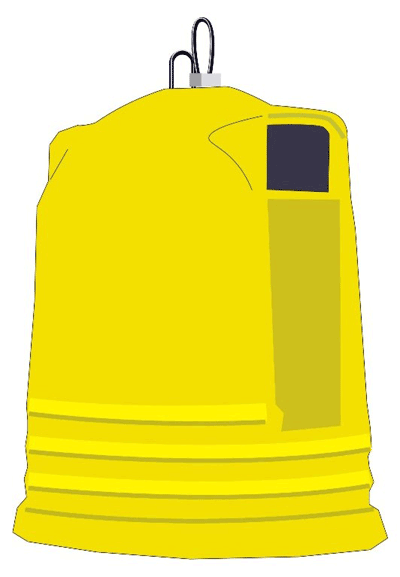
False myth number 4.-plastics are harmful to the environment because they consume oil
Plastics, in most of its applications, save more oil than which is used in its manufacture.
Plastics come from oil in its origin, but during its use, in the form of piece of automobile, packaging or element for the construction, saving oil because they allow to save fuel and energy, while reducing CO2 emissions.
In addition, plastics at the end of its useful life, can again be 'equivalent oil', if you use plastic waste as alternative fuel.
The oil in Europe is used mostly in transport (45 percent) and thermal and electrical energy (42 percent) being just, a 4 per cent the target to plastics.
In the sector of the automotive and transport in general such as aviation or rail, plastics provide lightweight and unique technical properties that allows to save fuel (4 times more in tonnes of oil equivalent to the employee for their manufacture) andIn addition, to reduce CO2 emissions.
Construction are used in plastics in insulation or Windows, for example, managing to save energy, both heating and air conditioning.
The energy equivalent of which is used for the production of foamed plastic insulation, recovers after its first year of use, which means a positive net savings during the remaining years of use, is usually a minimum of 50 years.
According to a study conducted by the Polytechnic University of Catalonia, the use of plastic Windows is an energy savings in households of 45 percent and a reduction in emissions of CO2 of 161 per cent.
In containers, once transported products packed with lightweight plastic materials as it is saving fuel as well as providing excellent properties of conservation at long distances.
The German Association for the study of market GVM assessed the consequences of a hypothetical elimination of plastics in the packaging sector. The result was that energy consumption would increase by 50 percent and CO2 emissions in a 100 per cent. Plastics allow savings of other resources such as water in large pipes to supply population and drip irrigation systems.
More than 50 percent of the goods packaged in plastic. Plastics prevent the losses of the content of the distribution at great distances from food and medicines to countries that need. And 'no loss' represent a saving of resources used to produce them. Taking as an example 700 grams of bread packaged in plastic, the 100 per cent of the energy to produce the whole continent and content (packaging + pan), just 3 percent refers to the energy to produce the packaging of plastic, and the remainder (97 percent) corresponds to the energy to produce own bread.
In addition, due to heat of plastics (45MJ/kg), more than coal (28MJ/kg) and power similar to natural gas (46 MJ/kg), at the end of its useful life, plastic waste can be used as complementary and alternative fuels with saving traditional fuels and reducing emissions arising therefrom. This is particularly interesting in the current energy landscape that advised the search for alternative sources of energy such as for example energy from waste.
For this reason, countries known for their strong commitment to environmental energy-recover plastic waste at levels of 75 per cent (Switzerland), 65 per cent (Denmark), 52 per cent (Netherlands) and 32 per cent (France) while in Spain only reaches 12 per cent.
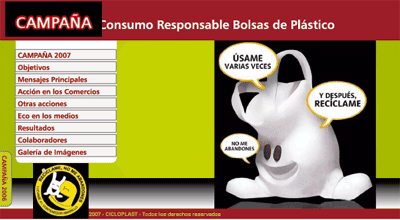
False myth number 5-plastic bags cause deaths of animals in the sea
There is no scientific evidence to support this claim. It is exaggerating unfairly to plastic bags, when the reality is that the majority of marine animals die due to other causes such as abandoned at sea networks, for example.
The problem of the uncontrolled abandonment the bags or other products such as gum, cigarette butts, paper, cans and jars, sometimes appearing pulled by field, beach, sea, or the mount, is not the product itself but the inappropriate behaviour of who thrust him there.
Why Cicloplast commitment to public awareness campaigns and advised to collaborate in activities anti-litter carried out by the landscape clean Association (www.paisajelimpio.com). The campaign of Cicloplast of responsible consumption of plastic bags, conducted in collaboration with Anaip and PlasticsEurope, insists the message of the R´s four: 'Reduces, reuses, recycle, I know responsible' (not leave plastic bags).


